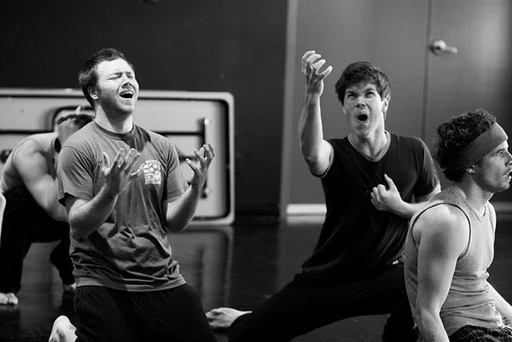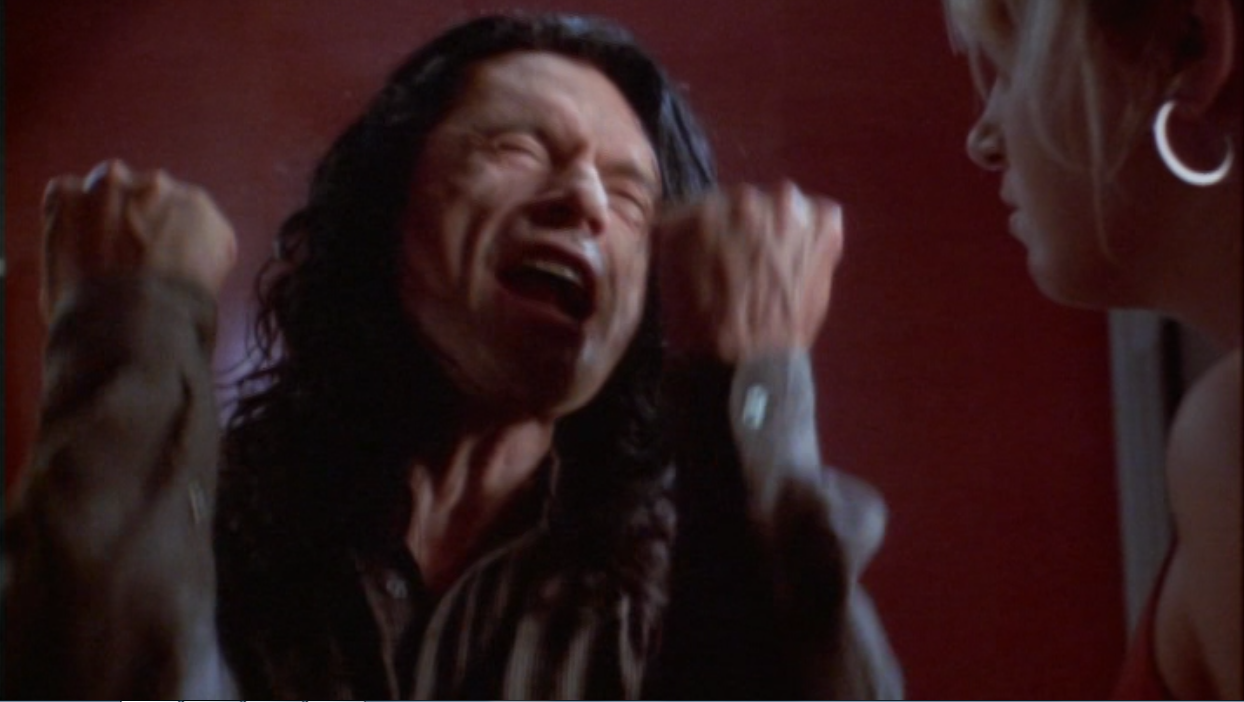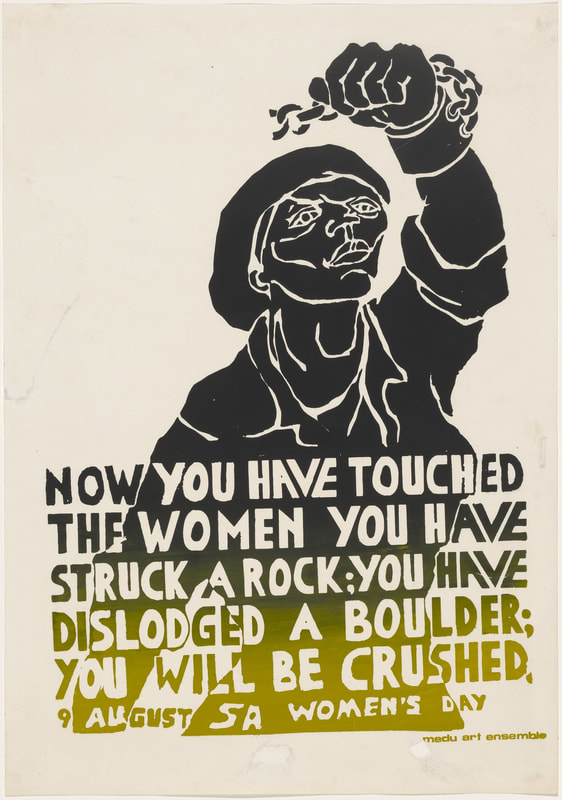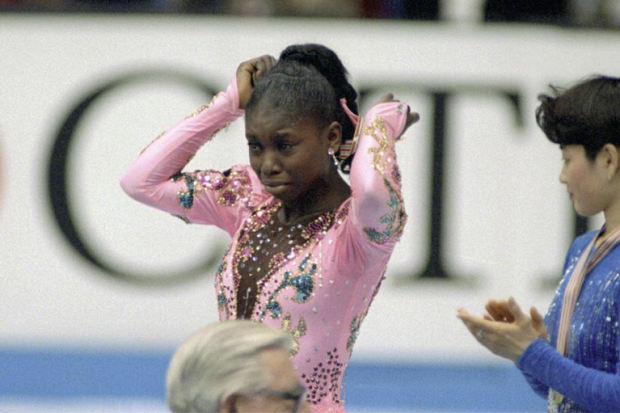 An acting class
An acting class So, one of the first principles of acting is “Don’t play the problem. Play the adjustment to the problem.” In other words, don’t worry about impressing the audience with what your character is feeling. Focus instead on solving the character’s problem. That’s what makes a performance believable, because that is what people do in real life… and audiences recognize that.
Let’s say you want to portray an innocent person who is being accused by a powerful group of people of something they did not do. That’s a serious problem. It’s a dangerous situation. The innocent party needs to tread carefully, be thoughtful, weigh her words. Because she is innocent, she has the truth on her side, and her best defense is a straightforward presentation that allows the facts of the situation to come through, untainted by emotions or editorializing.
 Anita Hill
Anita Hill What did she do? She became very still, very grounded. It was excruciating to watch. Hour after hour, she barely shifted her physical position, hands under the table. No extraneous motion, nothing that could distract. She was scrupulously accurate and unemotional. Her entire being was focused like a laser on solving the problem of presenting the truth and countering the false accusations.
 Brett Kavanaugh, bad actor
Brett Kavanaugh, bad actor AMY KLOBUCHAR (MN Senator): …Was there ever a time when you drank so much that you couldn’t remember what happened, or part of what happened the night before?
BRETT KAVANAUGH: No, I — no. I remember what happened, and I think you’ve probably had beers, Senator, and — and so I…
AMY KLOBUCHAR: So you’re saying there’s never been a case where you drank so much that you didn’t remember what happened the night before, or part of what happened.
BRETT KAVANAUGH: It’s — you’re asking about, you know, blackout. I don’t know. Have you?
AMY KLOBUCHAR: Could you answer the question, Judge? I just — so you — that’s not happened. Is that your answer?
BRETT KAVANAUGH: Yeah, and I’m curious if you have.
AMY KLOBUCHAR: I have no drinking problem, Judge.
BRETT KAVANAUGH: Yeah, nor do I.
But Kavanaugh chose to perform indignation, attitude, and outrage, because the truth was not on his side and also because he was vulnerable to fear, guilt, and shame.
 Lessons from the Road
Lessons from the Road So Kavanaugh played outrage. And so did Lindsey Graham. In fact, Graham’s performance was even more transparent, as he used the display of anger to derail a specific line of questioning that was not going well for Kavanaugh. Because outrage carries the overtones of emotional violence, it disrupts discourse. People confronted with outrage have a visceral response. Their choices become “escalate” or “appease.”
Kavanaugh’s display of outrage worked to solve his problem: that of a guilty man attempting to defend himself when the facts do not support his case, when he is under oath and afraid to lie, and when he is fending off tell-tale emotions of guilt, shame, and fear. To a trained actor, Kavanaugh's performance of outrage was an admission of guilt, pure and simple.












 RSS Feed
RSS Feed
